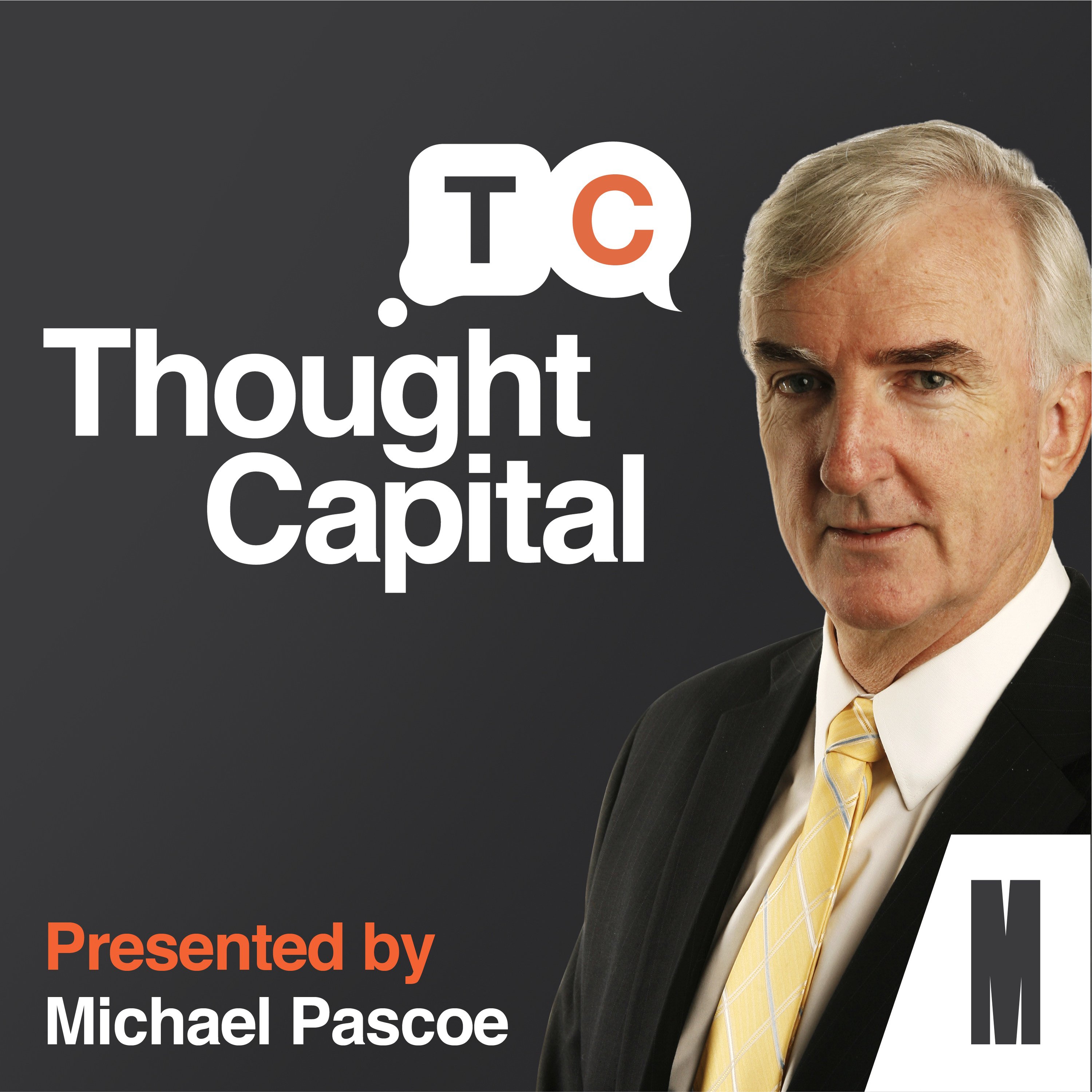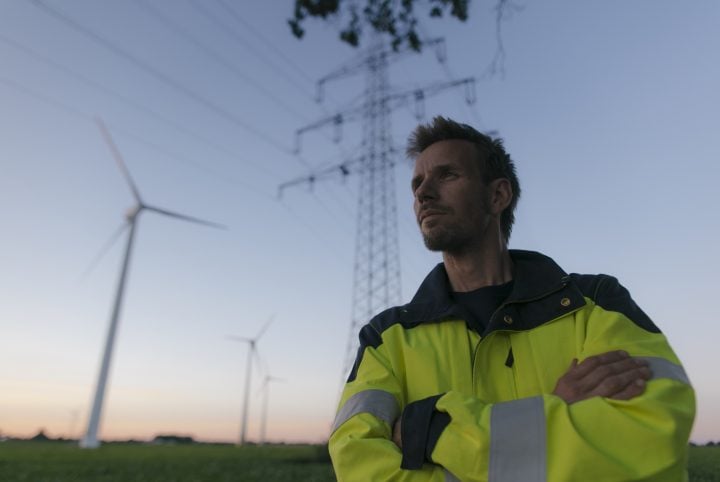Michael Pascoe: If you weren’t already working from home, collaborating in Zoom meetings, shopping online and summonsing dinner over your mobile phone Azar, the pandemic has made you do at least some of that. What many thought would take years, COVID-19 has achieved in months. Digital disruption was well underway before the pandemic, but necessity is a powerful accelerant turbocharging the fourth industrial revolution.
To try to catch up with where we’ve already gone, let’s look a little closer what the pandemic has done for this digital transformation. My guests today are Monash Business School Dean Simon Wilkie, an expert on digitalisation and Professor Deep Kapur the Director of the Monash Centre for Financial Studies with a long career in the investment industry, welcome.
The promise of digital disruption was to be the democratisation of access to intelligence, but the delivery so far has been increasing inequality, more wealth at the top, not in the middle or at the bottom. Professor Simon Wilkie, is that a fair call?
Simon Wilkie: That’s correct. That’s been going on since around 1980. We’ve had about almost 70% increase in productivity over that time period, but our only wages have only grown about 11 and a half percent. So a six-fold difference between the increase in productivity and wages.
That increase in productivity is largely being captured by profits and what we call intellectual property rights. So that’s why you’re seeing the staggering value of companies like Apple and Google and Microsoft and now Amazon.
Michael Pascoe: Deep, how has digital disruption changed the finance industry? That’s where a lot of the money has been hoovered up into, isn’t it?
Deep Kapur: Yes. To some extent, I remember reading an article in The Wall Street Journal in 2011, written by the venture capitalist Mark Andreessen, where he explained that he sits behind his investment strategy, saying that his prediction is, software will eat the world, particularly the financial services’ industry. And that’s what is happening with disruption in finance, software is eating them from the inside and outside.
Banks are transforming themselves into technology companies that happen to be in the banking business, or that is the aspiration. Some will succeed and some will not succeed, and that’ll determine who survives and who doesn’t. Some are adopting a strategy to digitise from the inside.
So ANZ in this country has a big emphasis on that, and some others are partnering with Fin techs because they don’t want to change their legacy systems, they want to do something from scratch, like Bendigo Bank and its partnership with the FinTech app. Virtually every area of the financial services industry, where the margins are fat, like international payments you’ve got organisations like TransferWise who are getting involved, Square and PayPal in other types of payment activity.
I think disruption has brought a great focus in the financial services industry on enhancing productivity, whether it’s using models for evaluating credit risk or using other techniques for income verification, use of alternative data in say the insurance business, that’s a big area of activity right now.
And the asset management business, that’s very big in this country, superannuation assets, $3 trillion and so on, that is yet to see the effects of disruption. And the investment organisations by and large are still run by people who were schooled in the era before digital disruption and the focus was on, how do we extract value out of tangible assets?
I’ve got a factory, I’m producing this, or, I’m borrowing from the Reserve Bank at 1% and I’m lending at 3%. All of that has now dramatically changed. In the new digital economy, you need to think about investments differently. The asset management industry is also getting disrupted. There are the halves, who’ve got the digital transformation and it’s the effects right, and there are the others who haven’t and those businesses are dying. So quite widespread, the impact.
Michael Pascoe: Then along comes COVID-19, what has that done to the disruption? Accelerated it changed it, sell it in another direction. What?
Simon Wilkie: This has been three years of change compressed into three months. One of the ways you would look this as an economist is, we dramatically changed the price of doing business the way we were doing it. It’s now incredibly expensive to have a hundred people in a room because you have to have the room, the size of a football field. The relative prices of doing business the way that we’ve always done business went through the roof. So that led to people adopting innovation, adopting new digital technologies, that they were sitting on the fence before, because everything was working pretty well.
We knew these changes were going to happen. What’s happened now is every companies had to become digital. We’ve seen changes in the way we work, changes in the way we operate people working from home, people working remotely.
When I was at Microsoft, most people work remotely. When you join Microsoft, they ask you if you need an office, where do you want your physical location to be? That’s going to be the future for everybody, not just the tech companies. Our own institution, Monash its culture was to resist working from home rules because of traditional command and control approaches to management.
There’s now this experiment that’s going on, where we had to throw all those norms out and sometimes businesses succeeded and sometimes they failed. So we’ve seen a tremendous amount of innovation. A lot of these digital changes are now going to be permanent, and it’s going to change the way firms operate. It’s going to change the way Monash operates.
Michael Pascoe: We’re not going to miss the collaboration that comes around the water cooler, the coffee shop, the pub?
Simon Wilkie: You just nailed it. We are exactly missing that. But what we’ve been able to do is identify the things that we are missing, where human to human interaction creates such value.
Michael Pascoe: We miss hanging out with each other at work, but what do you think COVID-19 has changed that won’t come back?
Deep Kapur: What will probably not come back is the mindless travel. For example, there was an assumption that, if you are working on a mergers and acquisitions transaction, you had to do everything physical. You had to go visit the factory, you had to sit across the CFO of the enterprise, you need to have 20 meetings with the CFO face to face because somehow that gave you better information.
And we’ve seen this year, certain parts of the finance industry hasn’t missed a heartbeat. IPOs are taking place, and financial we’ll do the world’s largest IPO ever next week, and 98% of that would have been done online. Drones are being used to inspect factories and people are quite comfortable with the results. So no one’s flying from New York to Wilmington in order to have a look at the physical facilities, drones are doing it for them.
I was talking to a bank in Asia, a senior person in the marketing area, and they said their travel budget is zero, but their revenues from their sales activity hasn’t suffered at all.
Michael Pascoe: What about the impact on culture, particularly recruitment, training new staff. How do you inculcate a culture over a Zoom meeting?
Simon Wilkie: It’s useful to look at the technology through the lens of, if it’s a compliment or a substitute for a human skillset. All technologies substitutes for labour, it takes some labour away, but the question is, what does it compliment and what does it substitute in terms of skills? I think it’s very hard to do bonding exercises for example, but something that we’re looking at as active area of research in Monash.
Michael Pascoe: Deep, in recent decades, the finance industry has exploded as a proportion of the economy, also as a proportion of wages and income have gone to the finance industry. It’s debatable, whether that’s been a good thing overall, does digitalization change that proportion or just further consolidate the wealth that’s going from it?
Deep Kapur: I think that trend is reversing, the trend where finance industry wages as a proportion of total wages was very high. But if you take a look at the US Wall Street has been in decline for some period of time. I think the asset management industry has maintained its strong standing, wages are still quite good, but it is tech where the young people are flocking.
Michael Pascoe: Who are the winners then of this accelerated disruption and who are the losers?
Simon Wilkie: I think what the pandemic has done is accelerate our transition to that age where the technology is going to be a compliment. And rather than just substituting for labour, we’re going to get to the period where we all benefit from this more quickly. That’s still a few years off. We’re still going to see a lot of disruption in terms of what are highly paid skilled jobs being destroyed. The winners, obviously in the short run are going to be the tech firms. The winners will be the people who can adapt to this new world, people who are resilient, people who have the ability to multitask and handle complex issues that involve several different areas of expertise.
The people whose future is at risk, anybody who is an expert at doing one thing that can be done algorithmically. For example, a doctor who looks at a medical chart or reads an X-ray or a scan. That’s a very highly paid set of skills to machine intelligence can do much better. So anything that’s a repetitive skillset that’s currently highly rewarded, in the next few years they’re going to come under pressure as those skills become substitutes for the technologies that are now being adopted.
Michael Pascoe: Deep, does that also hold true in the finance sector? Are these types of jobs also going to disappear?
Deep Kapur: I think those jobs are going. Those jobs where people are processing data in their head, looking for patterns in their head, as Simon said, machines are much better at doing that. Where I see a lot of demand is for people who can work with the customers of the service and with the technology that is producing the insights. To give you an example, five years ago there was a lot of excitement about what is called robo-advisors. There was this belief that, all these farms and those farms still exist, some are dying, some are still chugging along they’re not making any money, they are using data to derive investment strategies. And the idea is that you and I and Simon would take our retirement savings and give it to them and an algo will manage the money. Now the algo might do quite well managing the money, but human beings are human beings.
The businesses in robo that are doing well are businesses which is recruiting people who have the EQ to be able to hold the hand of a retiree and say, “Yes, there’s a pandemic and the market has gone down 15%, but you know, the algo is designed for someone in your face of retirement. It should be 40% in stocks and 60% in defensive assets, and now is the time to rebalance the portfolio and here is why.” And Vanguard’s done that. Vanguard is a very astute organization, so when they built their robo business in the United States, you as a client actually have a human being to talk to not just a machine, which is sending you an automated email saying, “This is what we are doing with your money.” And a lot of jobs are being created in the area where humans are helping other humans adapt to using technology for what they do. So I am not as pessimistic about the future for jobs.
Michael Pascoe: If COVID has accelerated this disruption, if it is accelerating greater inequality, more power and wealth in the hands of the few, does government policy have to change to make it acceptable? Can we continue with the same overall government policies we presently have?
Simon Wilkie: Any job could potentially be disrupted at any point in time. I think what we need to do is rethink education as a lifelong process. You might start to be trained as an accountant and then accountancy disappears. Then you decide, well, I really always liked plumbing, maybe I need to be retrained as a plumber. You could think of it as being, rather than the government subsidising education at the start of your life, we get the finance people to view it as, okay, this is really an asset that has to be distributed over your lifetime.
Maybe you’ve got a bank of credits that you can draw on to be re-skilled through educational institutions at different points in your life. People say, now you might have to have three or four careers in your lifetime. Well, if that’s true, you’re going to have three or four periods of having to be re-skilled where perhaps you’re not in the labour force for some period of time.
We need to move to that mindset where this is really about extensive re-skilling.
Now Singapore has moved towards this lifetime bank, if you will, of credits for education, but that’s going to be expensive. What is significant in Australia and in most of the developed world is, if we take that 1980 benchmark up until about 1980, the history of the world was, two thirds of income went to labour and a third went to non-labour incomes, rents, capital interest. That’s fallen dramatically. In October this year, we just reached the point where Australia wages are now less than 50% of GDP.
So wages are the small half of income now. That means we need to rethink our tax system and if we’re going to be able to afford these types of social insurance policies that are going to be needed going forward. And we need to find a way I think, to tax non -wage income in a way that this doesn’t strangle off investment.
I think what we should be doing is seizing this opportunity and accelerating the re-skilling that’s going to be needed rather than just looking at this transition as, we’ve got to keep people’s income supported. We should be seeing a massive investment in education, but a strategic investment, not just throwing money at units or tapes.
We should be taking a hard look at where we think the skills are going to be generating value in the future. I think we need to be thinking, not just in terms of jobs, but in terms of start-ups, in terms of what other firms of tomorrow, not just one of the jobs of tomorrow and start building out that infrastructure.
Michael Pascoe: On a relative basis, how is Australia placed with disruption? Are we lagging or up with the pack?
Simon Wilkie: Yeah. This isn’t neutral, this is just all technology is good technology. The value is largely being generated in one sector, which is the ICT sector information and communications technology, to the extent that it’s being generated outside, that it’s really applications of those technologies to industries. The people innovating in finance are really innovating by adapting technologies developed in the ICT sector. The value of Apples is approximately the value of the entire superannuations game in Australia, not that far off, but that’s one firm and the profits of that one firm.
Amongst the developed nations, the OECD countries, Australia is second last for ICT sector. Only Mexico has a smaller sector than us.
If we want to grab a slice of these profits going forward, we’ve had a good run with mining, we’ve lived well off for several years now of extractive technologies. Honestly, our applications of technology to the extractive industries is world-class. We are ahead of everybody else in terms of technological development in mining and in construction. We really are the world leaders in those two sectors.
But honestly I don’t think those two sectors of the future, we need to get into the ICT sector and we need to catch up because not only are we second last, we’re actually falling by comparison with countries like Canada, Israel, which has a start-up sector, four times our size.
Michael Pascoe: Deep, in finance and investment, are we in the pack or lagging?
Deep Kapur: I think in finance and investments, we are probably in the pack. Bloomberg has a global ranking of countries by innovation. It supports what Simon just said for the ICT sector. So we are ranked number 20 in the world, which I think is not very good and they have seven sub indicators, and now we are pretty much not doing well on anything, not just ICT, researcher concentration, tech density. And there are lots of countries at the top of this innovation index, which are sort of our size. And Switzerland, I think is ranked number four, which is a good comparison. They have got a big finance sector like us, because Singapore scores very well. So I don’t think we are doing very well at all.
Michael Pascoe: We’ve already touched upon it earlier in the episode, when we talked about the need for lifelong learning and adoption, and the kind of government policy the future will require, the re-skilling. Talking to the Dean of Monash Business School, we need to address the elephant in the room though, what the pandemic has done to higher education. In Victoria, international education has been the largest service export industry for the last decade. In 2019, the sector generated a record $13.7 billion in revenue, according to the Victorian government. The pandemic has greatly affected this industry. Simon Wilkie, you used to rely on welcoming a large number of international students, as the pandemic put an end to that, at least for the time being.
Simon Wilkie: The short answer is, no. It has had a significant impact and has forced us to change. When the pandemic hit because of the timing we had about 3000 enrolled or incoming students outside the country that couldn’t get into the country. We moved online as everybody else did rather dramatically. We made investments in global bandwidth improve the quality of the delivery. We struck a deal with Alibaba in China to get better ISP access for students in remote areas. So we made a lot of investments and the number of students who dropped out or the number of students to defer their enrolment was much smaller at the end of the day than what it was looking like at the start of the year.
We called everybody over the phone and put together a specialised one-on-one course plan for them on how to get through this year. And we retained thousands of students internationally. So at the end of the day, our losses, in terms of the number of international students were only a fraction of what we were looking at, at the start of the year. What students miss of course is the face-to-face interaction through tutorials.
What this has really taught us is, where does human contact add value? What is being missed? Where do we have to focus on to improve the educational experience? And where can we use the technology as a compliment to enhance the value of our products and our teaching and our research? It’s been a tremendously expensive experiment to go through this year and very painful, but we’ve learned a hell of a lot.
Michael Pascoe: How stressful has it been?
Simon Wilkie: It’s been incredibly stressful. When students started the dropout, we lost 500 students in two days. If they had continued, that keeps you up at night. The staff has been brilliant this year. I’m really proud of the work that everybody’s been able to do. I’m really proud of what we’ve been able to deliver, but it has been intensely stressful. One of the things we know, and Deep knows this about markets, it’s not just people in sorts of that markets, they hate uncertainty.
Michael Pascoe: And that uncertainty continues, how do you plan for 2021?
Simon Wilkie: We have to, we’ve planned. At the moment, we’re planning for a reduction in incoming numbers. Honestly, we won’t know until next year.
Michael Pascoe: How’s the Australian tertiary sector overall being short-sighted by putting too many eggs in just one basket?
Simon Wilkie: The Australian university sector’s international expansion has fuelled really the growth in quality of education and quality of research, not just quantity over the last decade or so. That’s really been remarkable in terms of a rise as research intensive universities. That did create this problem of a tremendous amount of risk in the sense that we did not have sufficiently diversified sources of income. Going forward we’re going to have to change that.
We’re going to have to be more diversified, we’re going to have better engagement with government domestically, better engagement with industry domestically. We’re going to have to be redefining the value proposition, looking for new partnership relationships rather than simply selling seats in education. We’re going to have to be more creative going forward, that’s for sure. We will be a different institution in five years than we were in 2019.
Michael Pascoe: Deep Kapur and Simon Wilkie, thanks for talking to us. And so we’ve come to the end of this season of Thought Capital. We hope you’ve learned something, been intrigued and inspired, I certainly have. Hopefully we’ve helped you connect some of the dots of COVID-19, so the path ahead is a little clearer and easier to navigate.
If you’ve enjoyed this podcast, drop us a review on iTunes and tell your friends about us too. Yes we love word of mouth. Until you hear from me again, take care, stay well. Thought Capital is written and produced by Tina Zenou, editor is Nadia Hume, executive producer, Helen Westerman. If you’d like to find out more, go to monash.edu/business.




